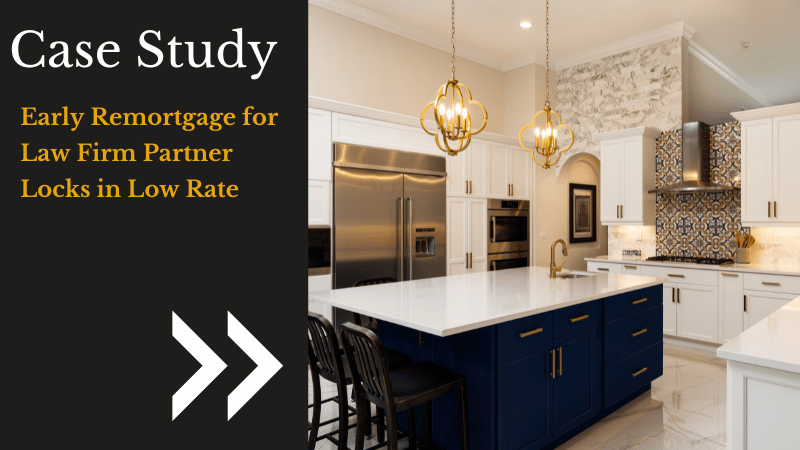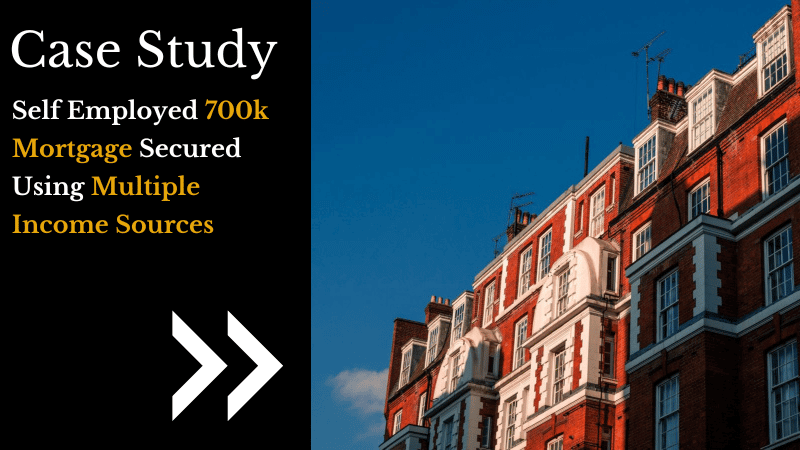Complete Mortgage Guide
Clifton Private Finance

Quick Links
Table of Contents
What is a Mortgage?
LTV (Loan-to-Value) and Deposits
Mortgage Rates
Repayment and Interest-Only Mortgages
Single and Joint Mortgages
Stamp Duty and Other Fees
Mortgage Terms
Mortgages and Life Insurance
Mortgages for Landlords
Commercial Mortgages
Remortgaging
Understanding Equity
Repossession
Applying for a Mortgage
Using a Mortgage Broker
What is a Mortgage?
Mortgage is the term given to a specialised loan that is used to purchase property or land.
The property is used as collateral for the loan, which means that if you fail to make your repayments, the mortgage lender can take ownership of the property and sell it to repay the loan - this is called repossession.
Mortgages are long-term loans with low interest rates that have been developed to help people buy property. They are an essential part of the property market, as it is rare for anyone to have the capital required to buy their home outright.
Mortgages are provided by a range of banks, building societies and other financial institutions, and can range from simple first-time buyer mortgages to complex and bespoke arrangements.
The facility providing the mortgage is called the mortgage lender, lender, or mortgage provider. While they have different offerings, the basic rules of a mortgage are set and mortgage lenders are overseen and registered by the FCA (Financial Conduct Agency) in the UK.

Understanding LTV (Loan-to-Value) and Deposits
Lending the large sums of money that constitute a mortgage is a significant risk to the mortgage lender, who must do whatever they can to mitigate that risk.
One of the ways they lower their risk level is by lending only a portion of the property value, rather than the full amount. This means the person they are lending the mortgage to (known as the buyer, mortgagee, lendee, homeowner, or property owner) must also invest some of their personal funds to buy the property.
If anything happens leading to the mortgage not being repaid and the lender being forced to repossess the property, then the buyer may lose their stake, or a portion of it, in this investment. This arrangement makes it far less likely that a lendee will willingly default on payments.
The percentage of the property price that the mortgage lender is willing to lend is known as the loan-to-value or LTV; while the personal capital that the property owner must invest is called the deposit.
Mortgage Rates
One of the most important considerations when choosing the mortgage is that of the mortgage rate. This is the interest rate that is applied to the loan.
Interest is money that is added to any loan to form the profit for the lender. The lower the interest rate, the better it is for the buyer, as they will have to pay less over time to the mortgage lender for the service.
Interest rates are complex calculations for the mortgage lender to work out, with several external factors affecting their size. The UK economy, rate of inflation, Bank of England base interest rates, and lendee risk factors are all part of the calculation that affects mortgage rates. For this reason, rates can change on a daily basis and be different from one application to another.
Getting the lowest interest rate for your mortgage is one of the key parts of selecting your mortgage, as a small difference, say between 5.1% and 5.4%, can save tens of thousands of pounds on your final mortgage cost, and hundreds of pounds on the size of your monthly mortgage repayments.
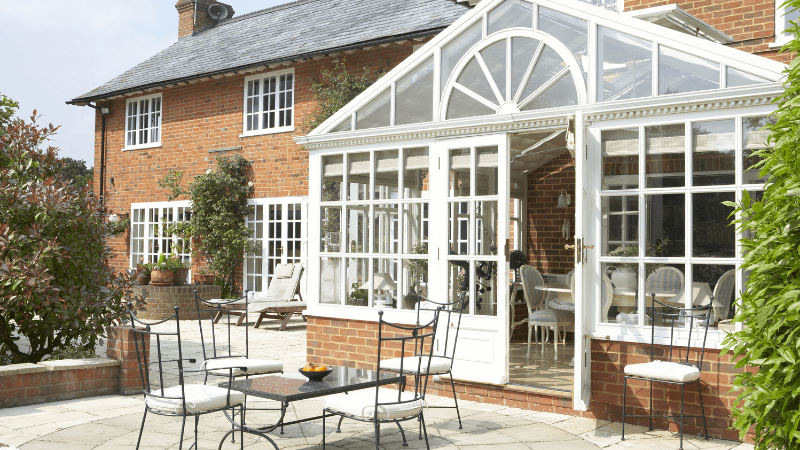
Fixed vs. Variable Rate Mortgages
Two of the terms used regarding mortgage rates are those of fixed rate and variable rate mortgages.
A fixed rate mortgage arrangement means that the mortgage rate is set at the time of application, and will not change throughout the fixed term. While it is extremely rare to get a fixed term for the full length of the mortgage, fixed term lengths range from one to five years, with some mortgage lenders offering ten-year and even fifteen-year fixed terms.
A fixed term mortgage helps plan your mortgage repayments, as they will remain the same each month during the length of the fixed term. It can also save you money, as if the interest rates increase, you are protected and will only pay the agreed interest rate for the term.
Fixed term mortgages protect buyers from instabilities in the economy and changes in the mortgage market.
When a fixed rate term ends, mortgage repayments will automatically revert to the mortgage provider’s standard variable rate (SVR), which may be significantly higher than the previously applied fixed rate - consequently, the property owner’s monthly mortgage repayments can suddenly increase by hundreds of pounds. For this reason, it is advisable to consider remortgaging at the end of a fixed rate period, often to find another preferred fixed or variable rate mortgage.
A variable rate mortgage does not have a fixed rate. Instead, the interest calculated on the mortgage and monthly mortgage repayments fluctuate based on the current market. This has advantages as well as disadvantages:
- When the economy is in good shape and mortgage rates are low, monthly mortgage repayments will decrease.
- Initial variable rates are often lower than fixed rates.
- Over the whole term of the mortgage, many variable rate mortgages work out cheaper and with fewer fees than those with multiple remortgaged fixed rate arrangements.
- Variable rate mortgages do not have the same monthly repayments and are difficult to plan and budget.
- If interest rates increase significantly, then variable rate mortgages can be more expensive.
Choosing between a fixed rate and variable rate mortgage can make a large difference to monthly finances, as well as long-term mortgage costs. It is worth discussing the specific offers available with a professional advisor.

Repayment and Interest-Only Mortgages - What’s the Difference?
The two main types of mortgage structures are repayment mortgages and interest-only mortgages.
With a repayment mortgage, monthly payments are made up of a repayment of the loan principal, which is the money that was lent, and the interest portion, which is the monthly interest added onto the loan. By the end of the mortgage term, the mortgage will have been repaid in full and there will be nothing left owing to the mortgage lender.
A repayment mortgage is typical for most homeowners and results in full ownership of the property.
An interest-only mortgage involves no repayment of the loan principle. Each month, the borrower has only to pay the interest portion of the mortgage. This leads to far smaller monthly payments.
Interest-only mortgages are often used by landlords, and are the structure of many buy-to-let mortgages. They are also commonly used by individuals with other property and assets under ownership that can potentially be sold in the future to repay the interest-only mortgage as opposed to making gradual repayments.
Which is Best - Repayment or Interest-Only Mortgages?
There are advantages and disadvantages of both, as seen in the following simplified examples:
Part 1 - The Repayment Mortgage
Simon and Mary bought a property valued at £100,000 25 years ago on a repayment mortgage at 2.8%. Their monthly repayments were £467.96 per month. During the time, they made many changes to the property and their improvements plus the rise in home prices in their area means they can sell their house for £380,000.
Part 2 - The Buy-to-Let Mortgage
Bill bought the identical house next to Simon and Mary, also valued at £100,000 25 years ago. He used a buy-to-let mortgage at the same rate and paid just the interest of £233.33 per month. He made similar improvements to the house and it is also worth £380,000.
The Difference in Profit (and Life)
In total, Simon and Mary paid £140,388 to the mortgage provider over the 25 years. If they sell their house now, they will have made £239,612 in profit.
Bill has £280,000 in the bank but paid £70,000 in payments over the time. His profit is slightly lower at £210,000.
Throughout the years, Bill has had an extra £234.63 per month to help with his monthly outgoings. He has enjoyed more holidays and been more relaxed over the time. Simon and Mary had some very tough months where they had to go without in other ways to make sure the mortgage was paid.
Simon and Mary, however, love their house and have no intention to leave. They are comfortable now knowing the mortgage is all paid and they are released from its burden in their retirement. If Bill wants to buy another house, he could obtain another mortgage with the significant £280,000 he has available as equity, or he could purchase a smaller property outright.
For a more detailed answer to this question: Interest only mortgages vs repayment mortgages.
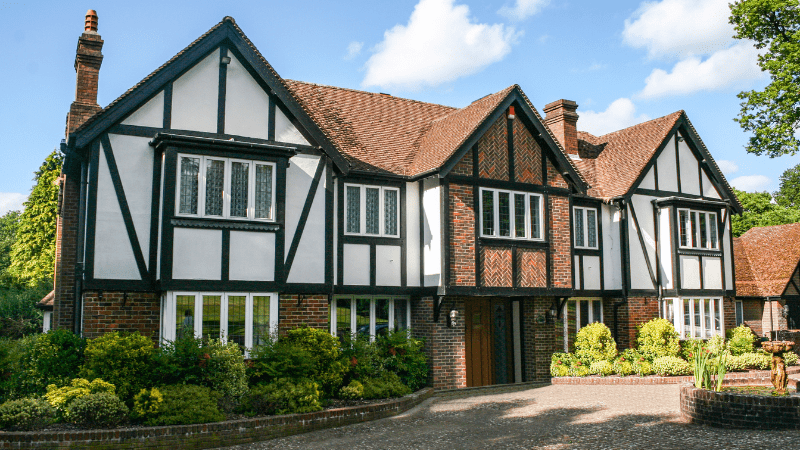
Single and Joint Mortgages
When looking at a mortgage to buy a home, mortgage lenders will naturally look at you as a family and, if you are married or in a civil partnership, will consider your application as a joint application. This means the finances of both yourself and your partner are equally relevant in determining risk and overall mortgage viability.
This has both its pros and cons. With both salaries combined, your family purchasing power is much stronger, yet if one of you has had a poor financial history, it will negatively affect the application.
Speaking to a mortgage broker about your options can give you a sense-check on what your best financing route is.
Stamp Duty and Other Fees
Purchasing a building is not a matter of a mortgage alone. There are a number of other costs involved in buying a house and obtaining a mortgage.
These fees can be considerable and most mortgage lenders fold them in and factor them into the overall mortgage, meaning you do not have to find additional funds beyond your mortgage to pay for them.
Additional costs to consider include:
- Stamp Duty Land Tax (SDLT or just stamp duty) - Stamp duty is a tax that is paid when you transfer ownership of a property. It applies for all properties valued at £250,000 and above and is banded such that the more expensive the property, the greater the level of stamp duty. First-time buyers are exempt from stamp duty, while those who own an additional residential property are liable for a 3% additional charge. A full breakdown of the cost of stamp duty is available on the government website.
- Solicitor’s Fees - Making a sizeable purchase for a building has a number of legal considerations. You will need to employ the services of a solicitor. This specialised type of solicitor used for property transactions is called a conveyancer. Expect legal services to add between £850 to £2,000 to the cost of your property purchase.
- Valuation Fee - The mortgage lender will conduct an independent valuation of the property as part of its risk assessment. This fee can range between £500 and £1,500.
- Surveyor’s Fee - A surveyor will check the property to ensure there are no physical problems with it, an essential part of the process. Surveyor fees range from £250 to £700, and will likely save you thousands on unknown problems in the future!
- Mortgage Fees - There are additional fees, such as the arrangement fee and booking fee that form part of the mortgage. These can total as much as £2,500.
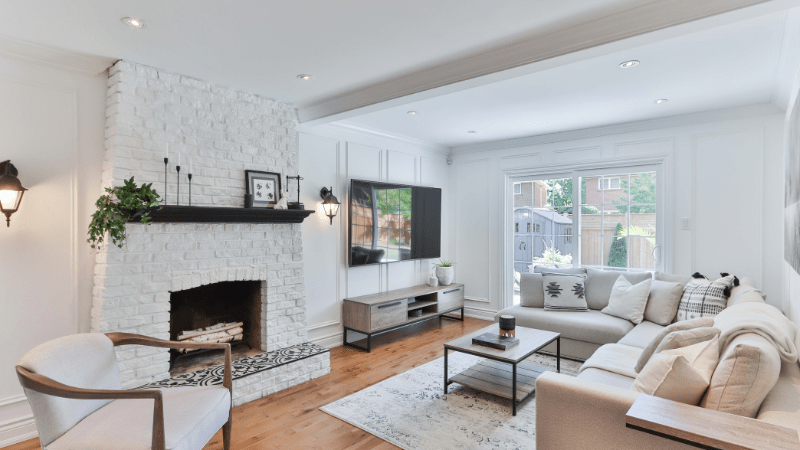
Mortgage Terms
While terms refers to a range of aspects to a mortgage, when discussing the mortgage term, it typically means the length of the mortgage in years.
As a mortgage is for a high sum, to make the repayments affordable it is spread over a large number of years - a standard mortgage is 25 years.
The length of your mortgage term is another consideration that will alter the cost of your monthly payments - longer mortgages are cheaper each month. However, over its entirety, the interest you will pay on a longer mortgage will be higher than for shorter mortgages. Balancing the monthly cost with the number of years you are willing to make repayments is important.
This can become an issue when looking to obtain a mortgage beyond 41 years old. In the UK, state retirement age for both men and women is 66; this means that when looking for a 25 year mortgage after your 41st birthday, you will still be needing to make mortgage repayments into your retirement. This may result in mortgage lenders offering only shorter term mortgages, that are more expensive each month, or looking to specialist lenders who are willing to consider your situation in more depth - perhaps if you plan to continue working beyond retirement, or have strong pension options.
With properties becoming more expensive and rising at a rate far exceeding the growth in salaries, mortgage providers are adding longer mortgages to their portfolios. 35-year mortgages, once an anomaly, are becoming ever-more common. Mortgage terms can range from 5 to 35 years.
Mortgages and Life Insurance
Most mortgage providers will require that you obtain life insurance that will cover the cost of your mortgage should the worst happen. This is especially true in family situations where others will want to continue living in their home even if you were to pass away.
A specialist life insurance product, known as decreasing term insurance or decreasing term assurance exists to cover a repayment mortgage. Decreasing term insurance lowers the payout in line with the drop in outstanding mortgage balance. As this lowering constitutes a lower risk for the insurance company, decreasing term insurance is an extremely cost-effective life insurance product that is recommended for all repayment mortgage holders.
For those with interest only mortgages, level term insurance, where the premium is set for the term of the insurance and doesn’t decrease over time, is more suitable.

Mortgages for Landlords
Those looking to become a landlord should consider the range of buy-to-let mortgages available. Designed to facilitate the purchase of homes for rental, buy-to-let mortgages are specifically tailored for landlord use.
Often structured as interest-only mortgages to keep monthly costs down and facilitate selling on of the property later to maximise profit, buy-to-let mortgages help landlords develop their property portfolio in the most cost-effective manner.
These structure multiple mortgages for several properties into one single mortgage umbrella, enabling landlords to use equity held in one building as the deposit needed to purchase further properties. Portfolio mortgages provide superior overall business structure for landlords as well as maximising the potential for growth.
Speak to one of our specialist advisors regarding portfolio mortgages, available for both limited company landlords and those who retain sole-trader status.
Commercial Mortgages
Commercial mortgages are available for businesses seeking to own premises. They can be used for purchasing:
Commercial mortgages are designed for business customers and offer superior options for limited companies to obtain the property they need to expand.
Remortgaging
Remortgaging is the term used when a mortgage is refinanced to obtain superior rates and terms. It is typical to remortgage multiple times during the time while you are repaying the outstanding balance on your property.
Remortgaging to Improve Mortgage Rate
Many homeowners will experience their first period of remortgaging when their fixed term comes to an end. In the closing months of a fixed term, it is beneficial to look to the market and get advice on what options are available, often to secure a new period of fixed term with either the same or different mortgage provider.
Remaining with your current mortgage once a fixed term comes to an end is often a financial mistake, as you will automatically be put on your provider’s Standard Variable Rate (SVR), with interest rates that are likely to be considerably higher than can be obtained elsewhere.
Remortgaging and ending an agreed mortgage early will incur additional fees, however. It is important that you assess those fees and make a decision that is truly beneficial when they are taken into account, rather than simply ‘jumping ship’ for a better-advertised mortgage rate.
Remortgaging for Home Improvements
A second reason to remortgage is to obtain funds needed for home repairs, renovations, extensions, or other improvements. In these situations, often a second charge mortgage is linked to the property to release some of the equity in the home. This can only be done after some years, when the balance of your initial repayment mortgage has lowered and you have obtained a greater level of equity in the property.
A home improvement remortgage may be with your original mortgage provider, or it may be obtained through a second lender.
Remortgaging to Release Equity
A third reason for obtaining a remortgage is to release some of the equity in the property for capital for other use. This may be as simple as wanting to go on holiday or buy a new car, or it can be for more complex reasons, such as ongoing care in later life.
Remortgaging to release equity is often used by homeowners who have completely paid off their primary residential mortgage and own their home entirely, seeking to use their home as collateral to fund other aspects of their life.
Lifetime Mortgages
A fourth version of remortgaging, a lifetime mortgage is effectively an agreement to sell your house to a lifetime mortgage provider upon your death. Money is provided upon the lifetime mortgage agreement, realising equity in the home. As part of the agreement, you are entitled to remain in residence for the remainder of your lifetime, but upon death, the house is sold to repay the lifetime mortgage and any interest accrued in the intervening years.
A lifetime mortgage is a valuable product for older homeowners looking to release the equity in their home for use in the later stage of their life, but with high interest rates and tight contracts, homeowners should be made aware that it is likely that by taking out a lifetime mortgage, it is likely that little-to-no inheritance from the home will be available to their heirs upon passing. If the homeowner wishes to pass equity from the house onto their children or grandchildren, then a lifetime mortgage is not often a good option.

Understanding Equity
When discussing mortgages, the word equity is often used. Equity is the amount of the property that you own, that is not leveraged as collateral for the mortgage.
A Simple Equity Example
Harry buys a house valued at £400,000 with a £40,000 deposit and 90% LTV mortgage for the remaining £360,000. At the time of purchase, Harry has 10% equity - his share of ownership is 10% and is worth £40,000.
After some years of paying back the mortgage and interest, there is only £240,000 remaining on the mortgage. Harry has paid a full third of the principal, and his equity has increased to 43.33%. Additionally, through the years, the house value has increased and is now worth £550,000. Harry’s 43.33% equity is worth £238,315.
Some years later, and continuing to make payments, the mortgage balance is only £120,000. Harry has paid a full two thirds of the mortgage, and his equity in his home has risen to 76.66%. Similarly, the house has grown in value even more and is worth £700,000. Harry’s equity is now valued at £536,620.
Negative Equity
Homeowners must also worry about negative equity. This is when the house has dropped in value from its original purchase price and the remaining balance of the mortgage is larger than the property price. In this situation, if you were to sell the home and give all of the money to the mortgage lender, it would not be enough to clear the debt.
Negative equity puts property owners in a horrible position where they have no option but to keep paying the mortgage and hope that house prices in their area rise so that the equity becomes positive. This also removes many remortgaging options as lenders are unwilling to refinance a loan on a property that has negative equity.
Homeowners on interest-only mortgages that slip into a spiral of negative equity are in a poorer position, as they are not ever increasing their personal equity in the property. In cases of negative equity, when the mortgage term is complete, the homeowner may be in the situation where they owe more to the lender than can be raised through the sale of the property, meaning they must find the difference from other sources or face bankruptcy.
If you are suffering from negative equity, it is important that you obtain professional advice. Speak to an advisor at Clifton Private Finance today to see how we can help.
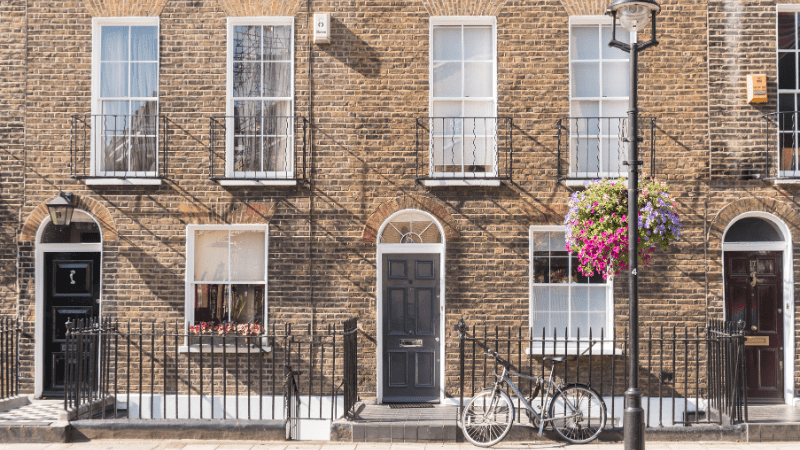
Repossession
Repossession is the term for when the mortgage lender takes control of the property and sells it to replay the remaining balance of the mortgage and recoup any potential losses. It occurs when the homeowner fails to make mortgage payments and the lender no longer has faith that the mortgage will be paid.
For the mortgage provider, repossession is a final option, and it is not one they want to do. If you are in the situation where you cannot make your mortgage repayments, it is absolutely essential that you communicate with your mortgage provider to see if something can be done to make the situation easier. Repossession is a complicated administrative and legal process that is best avoided for all parties.
Many people believe that if their home is repossessed, they will lose all the equity they have in it - meaning that all the money they have put into the property is lost. This is not the case; the mortgage provider is only looking to obtain the money needed to repay the mortgage and any fees that are applicable. While they will do this in the most time-efficient manner (which means it is very unlikely that the property will be sold for its full market value), they are not looking to take more than they are owed. If the sale of the property results in a greater sum of capital than is needed to repay the mortgage lender, the difference will be returned to you.
If you are struggling with mortgage payments and facing the real threat of repossession, it is important that you seek help. At Clifton Private Finance we may be able to find alternative financing that will help you even in a position of poor credit. Make sure you speak to an advisor as soon as possible.
Applying for a Mortgage
Applying for a mortgage is quite a lengthy process with a number of checks to ensure everything is done correctly. As with any financial undertaking, the better position you are in financially, the more options will be open to you.
Credit Checks and Stress Tests
One of the key components to a mortgage application is providing the mortgage lender with enough verifiable information that can show that you are able to make your mortgage repayment commitments. This will involve providing income and banking information, as well as a full credit history report and stress tests.
The Credit History Report
Your personal credit history, credit score, or credit rating is core data that any financial institution will consider when evaluating you for a mortgage. It provides a comprehensive overview of your financial responsibility and is a key indictor of risk.
It is important that your credit score is in good health prior to applying for a mortgage. It is worth taking the time to build this up through three-to-six months of careful budgeting and financial control, ensuring that every bill and credit card payment is made on time and in full, as well as lowering your general reliance on credit by lowering credit card balances and ensuring that overdrafts are cleared.
When you make a full application for credit or a loan, this creates a mark on your credit report - this is especially true of a mortgage application.
It is important to limit the number of applications on your credit history. If you have recently made applications for credit in this way, it is worth waiting a full three months before making any further mortgage applications.
Affordability Stress Tests
Affordability stress tests are a secondary way that mortgage lenders assess your viability for a mortgage. These are done by comparing your monthly debt liabilities, other responsibilities and outgoings, to your guaranteed monthly income. If the two do not compare favourably, then you are seen to have failed the affordability stress test and are considered a high risk mortgage applicant.
It is possible to improve stress test results by taking a good look at your monthly outgoings and removing those that are unnecessary. Multiple subscription based services, such as gym membership, television services, software subscriptions, food or wine subscriptions, and other similar services can put unwanted stress on your monthly budgets and can easily be gone without for a while to improve your mortgage application. Cancel anything unused or unimportant.
Vehicle finance, loan repayments and other debt management are also important factors. Look to these and try to not start anything new in this bracket while planning a property purchase.
Stress tests often seem unfair, with applicants feeling they have the available funds to afford a larger mortgage yet failing on a lender’s stress test. This is because lenders are looking to mitigate risk and look at your finances in a long-term way. While you may feel that you’re happy to push your budgeting to the edge in order to afford a dream home, they might not agree that such a thing is sensible when signing up for a twenty-five year obligation!
Using a Mortgage Broker
An independent mortgage advisor and mortgage broker will make all the difference in your mortgage application. When considering a mortgage, it is always best to speak to a professional independent mortgage broker like Clifton Private Finance. With access to the whole of the UK marketplace of lenders, a mortgage broker will find the best deals and most appropriate mortgages for your specific needs, as well as helping you smoothly through the process.
At Clifton Private Finance, we have specialist mortgage teams for all types of mortgage, from experts in obtaining a residential repayment mortgage for the self-employed, through to in-depth debt advisory for companies looking to develop land for major projects. We have teams dedicated to:
- Personal residential mortgages
- Landlord mortgages
- Bad credit mortgages
- Self-employed mortgages
- Single and joint mortgages
- Mortgages for expats
- Commercial mortgages
- Land development
- Shop and retail mortgages
- Remortgaging
- Property redevelopment mortgages
- Bridging loans
- Rapid mortgages for auction properties
We will find the best mortgage rates and work with you to make sure the mortgage terms are ideal for your situation. Contact Clifton Private Finance today for more advice and to begin the mortgage application process.
To see what we can do for you, give us a call at 0203 900 4322 or book a free consultation below.


